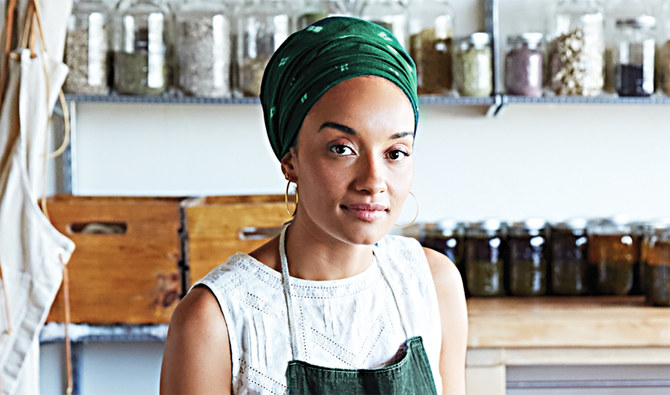DUBAI: Amid global controversy over Facebook being broken up as the US Federal Trade Commission (FTC) filed an antitrust lawsuit, the company held a press day for the Europe, Middle East, and Africa (EMEA) region to discuss the highlights of 2020 and trends for 2021.
Right off the bat, Facebook’s EMEA vice president, Nicola Mendelsohn, addressed the issue of misinformation on the platform. She said: “We’ve worked really hard to combat misinformation across our platforms.”
The company removed 12 million pieces of harmful misinformation related to the coronavirus disease (COVID-19) from Facebook and Instagram and put warnings on 50 million items of content.
Additionally, it will continue to remove any false claims about the upcoming COVID-19 vaccine. Mendelsohn also spoke about the impact of the pandemic on small businesses.
Facebook’s research, in partnership with the World Bank and the Organization for Economic Co-operation and Development (OECD), showed that more than half (55 percent) of small businesses globally reported lower sales in 2020 compared to last year, and over a third (34 percent) had to reduce the number of people they hired — a devastating outcome for a sector that makes up at least 90 percent of global businesses.
In response, Facebook introduced — and will continue to do so — a slew of measures including integration shopping capabilities within its apps, paid online events, and personalized advertising at a more affordable cost than traditional media such as TV or outdoor.
FASTFACTS
● 55% of small businesses globally reported lower sales in 2020 compared to last year.
● 34% of small businesses had to reduce the number of people they hired.
● More than 175 million people message a WhatsApp Business account every day globally.
● Total daily conversation from people and businesses on Messenger and Instagram grew by more than 40%.
“We’ve been seeing the boundaries between online and offline continuing to blur over the past few years. People are using online more to browse and to plan their purchases in advance,” Mendelsohn added.
Jordanna Whayman, commerce product marketing lead at Facebook for the EMEA region, spoke about the idea of “discovery commerce” where products find people — not the other way around — through a unified shopping experience across Facebook, Instagram, Messenger, and WhatsApp.
Brands can now use Facebook’s Commerce Manager tool to catalogue and display products as well as push them on their Facebook and Instagram shop.
The company is also heavily investing in augmented reality (AR) and virtual reality (VR) to make online shopping a more pleasurable and realistic experience. Its new system, GrokNet, can understand precise specifics about what is in nearly any photo in addition to technology that can automatically turn a 2-D phone video into an interactive 360-degree view.
Whayman said: “Customers that are browsing Facebook can directly message the business through WhatsApp, Instagram Direct or Messenger, to ask questions, to get support to track deliveries, and much more.
We’ve worked really hard to combat misinformation across our platforms.
Nicola Mendelsohn, Facebook’s EMEA vice president
“And, in the future, customers will be able to view a business as shown, and then make purchases right within a chat.”
According to company data, total daily conversation from people and businesses on Messenger and Instagram grew by more than 40 percent.
This trend is especially prominent on WhatsApp where 175 million people message a business account every day.
WhatsApp’s product management director, Ajit Varma, said: “We are focused on making sure all businesses are able to access WhatsApp, but we’re specifically also focusing a lot on commerce. Over the last year, we have really seen an explosion of commerce on WhatsApp.”
In response, the platform has launched several new measures and tweaks including an integration with Facebook and Instagram shops that enables shoppers to connect with businesses directly over WhatsApp, and Catalog, which allows the merchant to upload all the items that they sell — from services to real estate agents and restaurants — so users can browse their catalog and then send a message to place an order.
Already 15 million small businesses use the WhatsApp Business app, and the number is expected to rise in 2021.
While Facebook is investing in measures to support businesses and combat misinformation, much of its efforts are aimed at helping brands advertise, and sell, more efficiently on the platform, and keeping audiences within its ecosystem — from content and product discovery to actual sales and customer service.
































